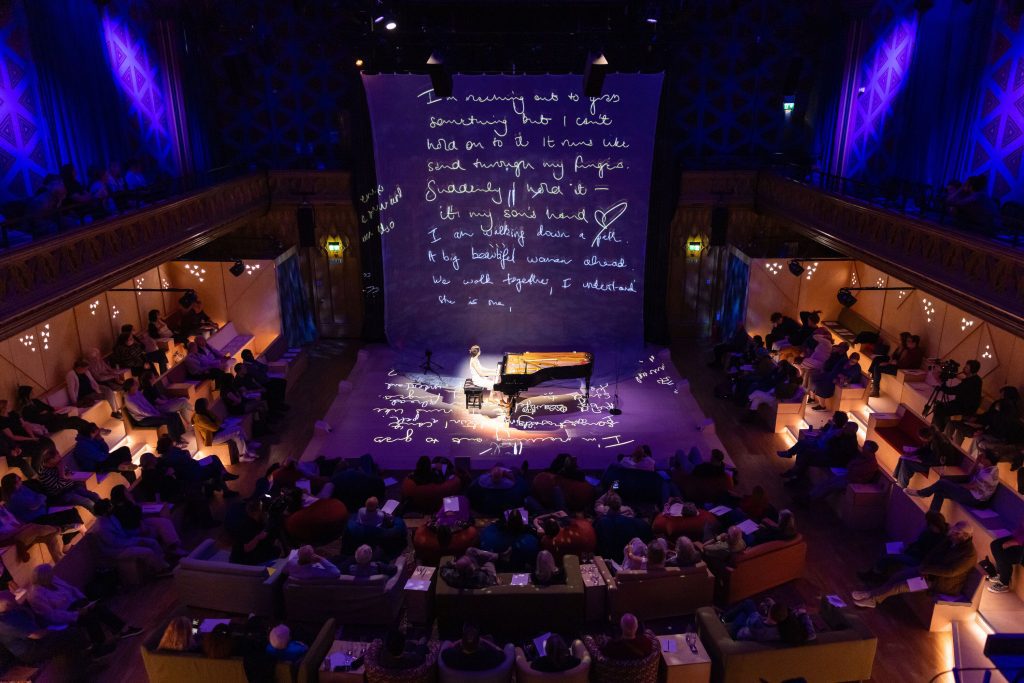
International Festival Reviews: Bruce Liu Plays Ravel, Hanni Liang: Dreams & Volosi
Bruce Liu Plays Ravel with the NCPA Orchestra
After esteemed conductor Myung-Whun Chung walked on stage with the hearty applause of the audience, The NCPA Orchestra opened the evening with Qigang Chen’s Wu Xing (the Five Elements). This ten-minute immersive fusion of Chinese and Western instrument and tradition soaked the audience in atmosphere and was a brilliant introduction to Beijing’s NCPA Orchestra on the first stop of their first European tour as they displayed an impressive range of talent and innovation.
Our headliner, Chinese-Canadian classical pianist Bruce Liu, did not disappoint with his lively rendition of Ravel Piano Concerto in G. Liu moved through all three movements with aplomb, leading the orchestra with the very jazzy and joyous “Allegramente” before slowing us down for a moment of quiet contemplation with “Adagio assai” as we appreciated both the composer and the contemporary musician. Finally, the tempo picked up with “Presto” and the audience was in Bruce Liu’s thrall as he feverously demonstrated his talent and ability with this technically challenging piece.

And, of course, as special treat, the audience was delighted by Chopin’s Fantaisie-Impromptu in C# Minor as an encore from the 2021 Chopin International Piano Competition winner himself.
Though Bruce Liu was the draw for many, the NCPA Orchestra and conductor Myung-Whun Chung were no less formidable in their skill. It’s always a pleasure to watch orchestra musicians at work, and as my eyes lingered from musician-to-musician, I witnessed their passion for their instruments and source material in the use their full bodies as they embodied the work they were performing.
After a short intermission, the orchestra took us through the nearly 40-minute Saint-Saëns Symphony No.3 in C minor. I admit my repertoire of classical music is shallow, but this is a piece I have always wanted to hear live. And hopefully with an impressive organ. And I was not let down by Usher Hall’s organ nor the awe-inspiring skill of each member of the orchestra. The whole performance felt viscerally palpable – but that could have just been the room vibrating.
Hanni Liang: Dreams
“I have only prepared four minutes of Debussey’s Rêverie,” said German classic pianist Hanni Liang. The other 60 minutes or so of her performance would be entirely dependant on the dreams of her audience. Not aspirations or goals, but the kind of dreams that take over our subconscious when we are most vulnerable in sleep.

She began this wonderfully creative and collaborative evening by asking the audience to write or draw on a piece of paper with the prompt, “I once had a dream….” After a few minutes where some of us tested our art skills, we were told to swap with our neighbour – twice. Once that was done, two tablets were available for audience members to scribble their dreams, and sometimes nightmares, while Hanni Liang improvised them as an extension of Rêverie.
Sometimes tender and sweet, other times apprehensive or bemusing, Hanni Liang demonstrated her ingenuity, creativity and repertoire with this communal piece that connected us all through each other’s dream. From children drawing their surreal dream of turning into turtles and elephants to elder people speaking to their late parents and siblings, it was a space where everyone felt safe to share with Hanni Liang guiding us on the piano.
VOŁOSI
Polish folk string ensemble Vołosi came into the hall like a Catherine Wheel and left it with just as much energy and passion.
The experimental band with Jan Kaczmarzyk on viola, Stanisław Lasoń on cello , Zbigniew Michałek and Krzysztof Lasoń on violins, and Robert Waszut on double bass, took through an cinematic experience rooted in their own traditional Polish backgrounds with an almost rock-like feel. Each whirlwind performance felt visceral, sometimes breath-taking in their pace to whimsical songs that would feel at home at sea shanty festival to eerie numbers that had our heart beat’s beating in our ears.

I felt like, through style and improvisation, the quintet were showing the audience how to use their instruments to its full potential. That they were masters of their instrument, knowing it inside and out and continuing to test its limits.
After a full day of reviewing shows, I left a lot more energised than I came.
Read more Fringe Reviews here.
Subscribe to read the latest issue of Scottish Field.
TAGS

